Originally published in January 2017, this discussion was sparked by the 10-year anniversary of the iPhone's original unveiling.
And now that it's been a decade since the actual launch of Apple's seminal smartphone, this look ahead at how Apple can shape mobile gaming in the next 10 years is doubly relevant.
Original text follows.
Last week, Apple's iPhone turned 10 years old.
And while it wasn't until a year after the device's launch when Apple finally rolled out the App Store, the Cupertino firm's smartphone debut no doubt had a huge impact on the burgeoning mobile games industry.
Who better to reflect on the 10 years since the iPhone launch - and the 10 years yet to come - than our Mobile Mavens? We asked:
- 10 years ago, Apple revolutionised the mobile games industry with the launch of the iPhone. What can/should it do to move the industry forward in the next 10?
As the co-creator of the first iPhone published game (iWhack) I’ve watched this market evolve over the years from a high-value premium one, to a market mainly based on free-to-play and ad-supported titles.
Here are some of my thoughts:
- The search ads are a good start at providing users with alternative paid acquisition routes.
As it is, Facebook dominates this, because of their targeting, but with any open bidding system the ROI is only positive for the most profitable apps.
- Curation is a good thing.
Apple needs to continue this effort at identifying new and original titles. As slim as the odds for success are, you want independent developers to continue to believe in the possibility of real wins.
The features are really the best track for the independents to achieve that.
- I can’t believe Apple is ignoring the VR/AR business.
Right now its in its infancy, but with Job Simulator earning over $3m it’s an excellent blue ocean of premium apps for developers to tap into.
Robert Scoble is convinced Apple is going to dive into this in a big way. Having had access to HoloLens and owning a Samsung Gear, I agree that Apple is going to do something in this space.
The question is, can Apple create something as shockingly innovative as the original iPhone was, in this new market.
We shall see.

Nick Malaperiman has launched Console, PC or Mobile games since '95. Nick first started at EA, launching multiple FIFA, NBA and NHL franchises, during 7 years. Nick then started Nokia's Games marketing division, launching 300+ games/apps in 7 years. Nick was previously GM of Yummi Games, in China and Founder of Chunky Pig Marketing - now part of Roadhouse Interactive.
I'm still recovering from the fact that Apple clearly stole all they have from Nokia's N-Gage Platform 10 to 12 years back.
With that out of the way: yes, they've changed the face of gaming for sure.
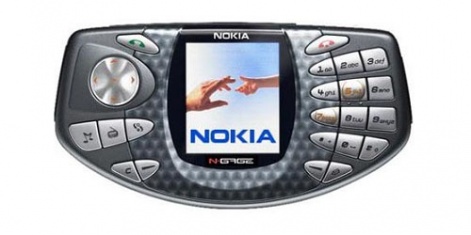
For the next 10 years, I think I'm most intrigued to see how they compete with all of the VR Platforms and also wondering what they can do to be a real player in eSports, will it be through hardware advancements, innovative on-device features or software, or shed loads of marketing dollars thrown in eSports direction?
In an entirely different vein, I'm also interested in how they can get powerful 'phones' into the hands of the three billion+ people who don't yet have an iPhone or similar device...
I'm not saying a Cambodian rabbit farmer will delight in playing fantasy action RPGs, but surely there's a market!
I think we are at the point where the innovation that the industry has to offer in the foreseeable future is not enough to make as big of a splash as the original iPhone made 10 years ago.
Not sure what it will be, and I don’t think VR and AR will do it, but we will have to wait a really long time for a next, huge game changer to happen.
We are in the stage where the mobile industry has matured and is more about marketing next year’s new design as a fashion accessory rather than being truly disruptive.
Unfortunately for indie developers, we need that disruption in order to make a huge impact on the market.
I'm with Dave on being a VR sceptic. Personally, I think VR will have a smaller number of users than smart watches do, and even smartwatches are pretty limited (compared to the massive smartphone numbers).
Estimates put wired VR headsets between one and two million shipped last year, and Samsung's Gear VR at five million shipped across all editions (not just in 2016, and counting the bundled ones).
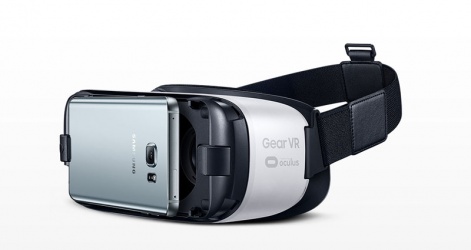
The question is, do shipments go up or down in 2017? Did a large segment of the VR-curious people already get one immediately when it came out, so that sales are flat or fall this year? Smartwatch sales seem to have stagnated due to this.
My bet is on Apple skipping VR for the next several years.
iPhone evolution will also slow down now from the hectic pace of the early years. There's just not a lot obviously missing from the latest devices.
My bet is on Apple skipping VR for the next several years.Torulf Jernström
Cameras will keep improving, and hopefully Apple adds wireless charging with a small range. None of that will massively impact us as game developers.
We get more speed, and have to worry less about battery life, but none of that's games.
If we get fold-out screens a bit further on, that would certainly help us. Think about having an iPad folded up to be iPhone size while in your pocket.
Larger screens means people are willing to spend more money for content - compare iPhone and iPad spend to see it.
To sum up, the next 10 years look more stable than the last 10 did, regarding the platforms we're on.
The content we produce - that's going to keep shifting towards more online interactions and larger, more expensive productions.
And playing games in self-driving cars are going to be a thing!

John is co-founder of PR and marketing company Big Ideas Machine. Also an all-round nice guy...
I think that Dave is right that we are pushing up against the limits of the current form factor of mobile phones and how this applies to gaming.
I think that we will see iPhones in the near term that integrate haptics into the screen technology, plus some kind of VR support is inevitable.
But whist that's going to be interesting for some, the bread and butter of mobile gaming comes from the skill and creativity of the developer rather than anything unique about the hardware.
Apple's biggest contribution was the fact that it came into a marketplace that was horribly fragmented and offered developers access to an ecosystem that completely broke the monopoly that mobile operators had over mobile content and services.
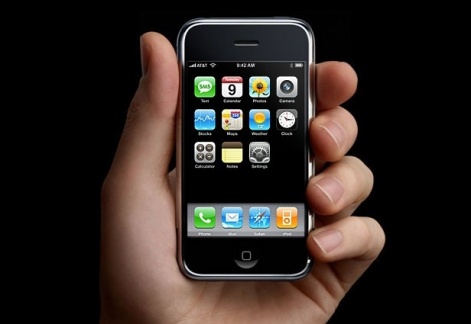
Second to that, the iPhone forced hardware manufacturers to up their game, with the result that very quickly all premium devices offered a touch-driven experience with a large screen that is ideal for gaming.
And you could argue that this combination of a direct-to-consumer model and a screen-driven experience sparked the mobile advertising industry we have today, as well as the emergence of the F2P model thanks to Apple's variable store pricing.
I don't think you can say that any of this was planned by Apple when it launched the first iPhone.
The challenges around creating and launching games on iOS are the same that have existed for many years and pre-date Apple - namely, the discovery and curation of games.
The problem stems from too many games competing for a limited shop window.John Ozimek
But I suspect that Apple is pretty happy with the ecosystem it has created - it certainly earns enough from it!
The problem stems from too many games competing for a limited shop window, rather than any intrinsic failure in the App Store model.
The immediate challenge to Apple is from the rise of social and messaging platforms, that have self-contained app stores and direct billing that circumvents Apple in the same way Apple did to the mobile network operators.
Although this may be more of a threat to Google, thanks to the more open nature of Android.
I think the real future of mobile gaming in the longer-term will be in how gaming as an experience adapts to new technologies beyond a handheld form factor.
Perhaps we will see the concept of 'mobile' games largely disappear as games cease to be limited to a specific device or screen-size, and we lose the distinction between mobile, console or PC.
The OG iPhone was a game changer. I have some crazy memories surrounding that phone.
Echoing Torulf and Dave, I agree Apple will likely skip VR. The real future is in AR because it makes a natural jump into including real life enhancements, not excluding the world around the user.
It needs to help simplify, or in some cases complicate, life. Watches make sense because they are unobtrusive and have natural applications for users. AR will be like a watch if done right.
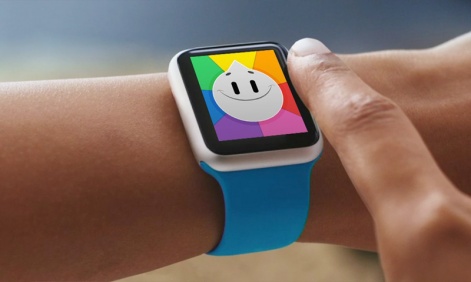
Apple does not have the luxury of putting out products all willy-nilly because they are known as the leader in hardware. Every move is scrutinised and reflected in a bouncing share price on the NASDAQ.
I really hope game engine devs start having more optimisations for games. Games use a lot of battery life, and it sucks.
There are companies like Superpowered Audio that are finding ways to optimise audio DSP to reduce CPU cycles, thus improving battery life.
We should be looking at how to make changes with software instead of relying solely on more horsepower.
I'm still hoping for more content to jump from mobile to TV with multiplayer in the living room. There has yet to be the killer app for it.
Since I'm now working closely with Twitch streamers and tech at my new company, Muxy, I'd really love to see desktop games that have mobile games that viewers can play to contribute to the game play of the streamer.
Make it happen, dudes!

A games programmer before joining Sony’s early PlayStation team in 1994, he then founded developer Pure Entertainment, which IPO’d and launched a free-to-play online gaming service way back in 1999.
He was also a director of pioneering motion gaming startup In2Games, which was sold to a US group in 2008.
Along the way, he’s been a corporate VP, troubleshooter, and non-exec to a variety of companies and investors in and around the games sector.
Harry was European CEO of Marvelous AQL, a Japanese developer and publisher of social, mobile and console games, known for console games like No More Heroes and Harvest Moon, but now highly successful in the free-to-play mobile and web space in Japan and Asia.
Harry is CEO of Magicave.
I'd like to see the friction reduced for players in terms of finding out about an app through to playing it.
We're seeing some early progress there with things like Facebook Instant Games, or even PlayStation Now, or from the various companies streaming games in ads.
Mobile should be ultra convenient for players - they should see a game and be able to start playing it instantly.Harry Holmwood
So far it's a bit unsatisfactory but, when we get that right, it'll transform the way people are playing. Mobile should be ultra convenient for players - they should see a game and be able to start playing it instantly.
Whether that's done by finally getting HTML5 right, streaming the game as you download an app, or some other tech remains to be seen, but as a consumer proposition it has to be where we get to.
I've said before that I think phones and VR is a red herring. Mobile works because you always have the device with you, and can play anywhere, any time. That's never going to be the case with a VR headset.
Yes, there are a fair few Gear VRs out there relative to console/PC hardware, but I don't believe anyone's using them for any length of time in any real numbers.
AR could be more interesting, if a way off - but, as we've seen with 3D TV, just because an industry wants a technology to succeed it doesn't necessarily mean people will actually want it.
So - I think on the Apple side, I'd love to see the discovery/installation issues resolved, but the bulk of the innovation is going to come from the software companies going forward.

Founder and CEO of Chorus Worldwide, a publisher for Western mobile developers seeking success in the Asian markets, Shintaro has over 20 years' experience within the gaming industry.
He has worked in various roles from game production, localisation, marketing and business development at companies such as EA, SCEE, Rare and Microsoft.
There’s still a huge gulf in the type of experiences that mobile offers vs. console (home, handheld, hybrid). While the interface is touch only - and does anyone still use the gyro? - this is going to persist.
CPU and GPU performance on the latest generation mobile devices, as well as connectivity, is getting to a place that can compete with consoles. But we’ll never get to those console style experiences without... controllers.
It can’t be third-party controllers as no one develops for them. It can’t be a separate, in-the-box device, because people will lose them.
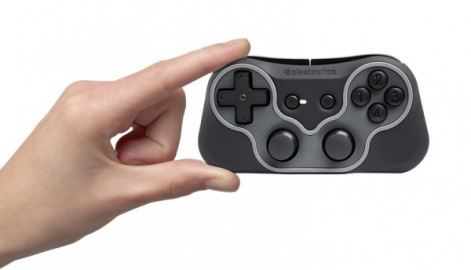
So ideally, a Switch style attachable or fold-out-able controller would allow mobile games to have all-new gaming experiences (not better or worse than touch, just different).
Of course, this will never happen.
Smartphones are not gaming devices, and billions of people don’t want additional weight on their smartphones for something they’ll never do, any more that we’d want a hardware numeric keypad because accountants cry out for one.
But from a pure gaming point of view, this would open the doors to a raft of new game types.
I’ll get my coat (and N-Gage).
I love the iPhone - it changed our lives. For Apple to drive us forward for the next 10, I think it's less about what tech they will support next, but their ability to return to simplicity.
The iPhone was the prime example of taking tech that was to complicated and making it simple for everyone. The Apple Watch or Apple TV don't do this in any way.
Apple TV is actually a huge missed opportunity, in my view.
I hope that on this 10 years' celebration, the iPhone returns the company back to simplicity first.
The iPhone truly 'changed the game', so to speak, with respect to how digital content is distributed, discovered, and consumed.
It's very difficult to top an achievement of the iPhone's magnitude, and I don't see Apple doing so.Devin Nambiar
I'd go as far as saying the device itself (and smartphones in general, which followed) created an entirely new behaviour set for the human race, which is now globally prevalent.
I think this will go down as probably its crowning achievement. It's also very, very difficult to top an achievement of that magnitude, and I don't see Apple doing so, but rather in continuing to make incremental improvements to its current products and services.
This is essentially the "Tim Cook approach," anyway. Steady revenues and incremental growth, but less innovation.
With respect to mobile gaming specifically, I don't think it's possible to repeat such a great leap forward in the next 10 years.
Apple's brushing aside (so far) of VR/AR shows that the company is making shrewd investments rather than cognitive leaps.
If I had to pick an innovation area they could invest in, however, it would be either in:
- Integrating AR technology across a suite of different types of devices for gaming, entertainment, and commerce.
- Making mobile gaming less platform-specific and focusing more on bringing players into a broader network across platforms, to create a seamless gameplay experience throughout the day - on mobile while in transit, on PC/console at home, and on HD as well.
Apple needs to take advantage of the fact that the world is becoming more connected to not only connect a players' devices, but also to bring in players across device types into broader networks.
The App Store itself may be a good place to start doing this, making certain aspects of it more social to turn it into a shared network and discovery experience.
I believe there is value to being the creator of not only the devices players play on and the distribution channels through which they discover content, but also the networks on which they play.

Oscar Clark has been a pioneer in online, mobile, and console social games services since 1998. He is also author of the book, Games As A Service – How Free To Play Design Can Make Better Games.
Ten years ago, I was lugging a three-tiered set of circuit boards around to mobile operators for NVIDIA, trying to explain that 3D games were going to be a thing for mobile - to often sceptical carriers.
Then we saw the announcement for the first iPhone and from that point I no longer needed to explain.
I remember a heady mix of foreboding and complacency at the time; after all, the operators 'owned' the customer and it wouldn't be until 2008 that we would get the 3GS and the AppStore.
That's what really changed everything.
Looking to the future, its hard to imagine our industry without looking to Apple for what they might do next; but I personally think that as the market has matured, Apple has too.
It's brought its trademark consumer delight to technical innovations which others have explored first.
VR and AR is here now, but we are at the early adoption stage where the experience is clunky, tethered by cables or limited by battery.
This is ever the case for any new technology - just think about the Gartner Hype curve. In another 10 years, we will take these for granted as much as we already do with the number of different screens we all carry all the time.
The biggest innovation is not about the technology itself, but how this has changed the way we interact with others.Oscar Clark
Right now, game developers have a massive opportunity to learn how to build incredibly immersive experiences in ways which will enrich all of society - not just in games - but there will be trips and stops on the way.
For me, though, the biggest innovation over the last decade is not about the technology itself, but how this has changed the way we interact with others.
The multiple screen world we live in allows us to connect with people on the other side of the world at the same time and in the company of our family; all enjoying different things but still together.
It has also changed our relationship with entertainment - in particular, look at the rise of eSports and YouTubers in the PC/Console space and how even now they are starting to change the way we think about design and marketing of mobile content.
This, to me, is where the next level of disruption will come.
Apple doing AR in the next 10 years feels more likely than not.
Wristwatches and glasses are the two accessories that already have social acceptance, and could be used for wearable computing - and Apple is already doing the watches.
With the current AR/VR space stretching from Google Glass to HTC Vive, I would guess Apple comes in closer to the Google Glass end of the spectrum - i.e. an AR device that's small enough to not be too embarrassing to use in public.
The original Google Glass was not a device I would make games for.
The question is, will 10 years be long enough for something like HTC Vive capabilities fitting into a Google Glass-like form factor?
That might be used for mainstream gaming. However, I think Apple will enter the space with other, everyday use cases as their top priority. Gaming has never been the main driver for them - only a convenient added bonus.



























